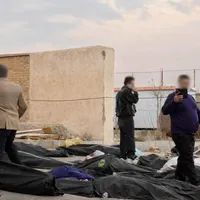Iran withdraws cyber bill after outcry over free speech
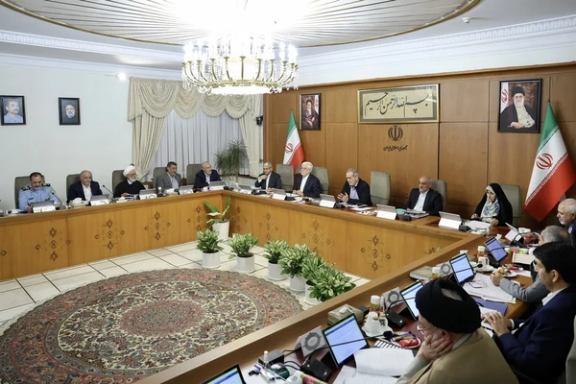
Iran’s government withdrew a controversial internet bill amid mounting public pressure and accusations that it sought to criminalize dissent under the guise of combating false information.

Iran’s government withdrew a controversial internet bill amid mounting public pressure and accusations that it sought to criminalize dissent under the guise of combating false information.
“In line with national cohesion and on the president’s directive, the cabinet today approved the withdrawal of the digital content bill,” government spokeswoman Fatemeh Mohajerani announced on X on Wednesday.
The bill, titled “Combating the Dissemination of False Content in Cyberspace,” had sparked fierce backlash since it was submitted to parliament on July 20 by President Masoud Pezeshkian’s cabinet.
It proposed prison terms, bans, and fines for online users. Penalties would be harsher for repeat violations, fake accounts, or posts during “crisis or wartime”.
“This bill is not an obstacle to free speech,” Mohajerani said earlier this month. “Its aim is to address fake and harmful news that damages public trust.”
Critics warned that its vague terms—such as “distorted, misleading, and harmful to public perception"—opened the door for arbitrary prosecutions.
“The bill is not designed to fight lies, but rather to eliminate independent narratives,” journalist Alireza Rajaei wrote last week.
Legal scholar Kambiz Norouzi and Reform Front chair Azar Mansouri both urged Pezeshkian to honor his constitutional commitments to civil liberties.
The proposal came just days after a fragile ceasefire was brokered with Israel. During the 12-day war, widespread internet blackouts across Iran had been attributed to issues of national security.
Over 2,000 citizens were also arrested during and after the war with Israel, accused of spreading false information online.
Though Pezeshkian had campaigned on promises of dialogue and press freedom, reformist figures accused him of enabling the very crackdowns he vowed to resist.
In October, rights watchdog Freedom House ranked Iran as having the world’s third most repressive internet environment and lambasted the Islamic Republic for criminalizing online criticism to boost voter turnout and legitimize its presidential elections.
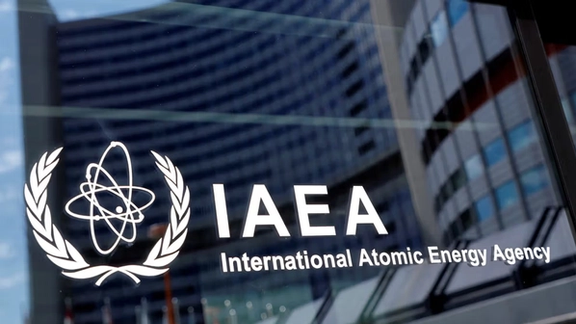
The Supreme Leader-affiliated newspaper, Kayhan, has accused the International Atomic Energy Agency of acting as a tool for Western intelligence, following new legislation last month that imposed restrictions on the UN nuclear watchdog's activities in the country.
“When the IAEA effectively plays the role of America and the Zionist regime’s eyes, Iran must firmly resolve to blind the eyes of Mossad and the CIA,” the paper said on Monday, citing espionage devices allegedly hidden in personal belongings.
Earlier this month, Mahmoud Nabavian, deputy chair of parliament’s National Security Committee, said that “suspicious espionage chips” had been discovered in the shoes of IAEA inspectors during visits to Iranian nuclear sites.
“Iran must now act decisively to neutralize these threats,” Kayhan added.
Parliament passed legislation in late June to suspend cooperation with the agency, accusing it of having given intelligence to the US and Israel which helped attacks on nuclear facilities, key personnel and sensitive sites in the country in last month's 12-day war.
Under the law, future inspections require approval from the Supreme National Security Council -- under the supervision of Supreme Leader Ali Khamenei -- and the agency must guarantee nuclear site security.
Foreign Ministry spokesman Esmail Baghaei said on Monday that a new framework for cooperation with the agency was under discussion.
“We remain a party to the safeguards agreements and a senior agency official will visit Iran within two weeks,” he said.
Last week, Grossi said that Iran has signaled readiness to resume technical-level discussions with the UN nuclear watchdog, though any planned visit would not yet involve inspectors.
kayhan warned, “This disgraceful record demands that all interactions with the agency be conducted with maximum caution and a thoroughly distrustful outlook."
Judicial official Ali Mozaffari said this month that Iran may try IAEA Director General Rafael Grossi in absentia over his alleged role in facilitating attacks on Iran’s nuclear facilities.
Grossi has faced consistent criticism from Iranian outlets for political bias, including Kayhan’s earlier call for his arrest and execution.
Britain, France, and Germany condemned the threats and expressed full support for Grossi and the agency’s mandate.

Iranian social media users have reported facing disconnection of their phone SIM cards and receiving what appear to be official conditions for regaining access including posting praise of the ruling system on social media.
Some users said that when requesting reasons for losing services from providers, they were advised to contact the Islamic Revolutionary Guard Corps Cyber Command or the Cybercrime Prosecution Office of the General Prosecutor's Office.
Upon contacting the offices, users received written instructions to verify their identity, sign a pledge not to criticize the state and post twenty messages of praise for the Islamic Republic on social media, Human Rights Activists News Agency (HRANA) reported on Tuesday.
The disconnection of SIM card services was implemented without prior warning or judicial order, it added.
One user shared a message from the Prosecutor’s Office identifying the service disruption and required actions.
“Your hostile and malicious activities on social media, contrary to the country's laws and interests, have been monitored and identified by the intelligent AI systems of the prosecutor's office. Accordingly, your internet account and SIM card services have been restricted or blocked,” the message to users read.
“To lift the restrictions and blocks, you are required to write the following pledge on a piece of paper, sign it, and provide your fingerprint. Additionally, you must publish at least twenty posts with positive content supporting the Islamic Republic of Iran on social media. These posts must not be shared simultaneously,” the message adds.
The pledge says that the "offending" individual accepts they will face legal prosecution if they repeat "malicious" activities, adding that all activities of such users will be under “constant AI monitoring,” HRANA said.
The report indicated the phenomenon was not new but appears to be becoming more widespread.
“They disconnect SIM cards with no due process, then force people to sign the pledge and remove content they don’t like," Iranian lawyer Mohsen Borhani warned this month on X. "Sadly, this is all illegal, but it’s becoming a common practice."

A 12-day war with Israel has ushered Iran into a new phase where crisis is no longer episodic but structural—an unstable order held together by instability itself.
Though short-lived, the war inflicted deep symbolic and political damage on Tehran.
Strikes on strategic infrastructure, the killing of top commanders and damage to air defense systems raised serious doubts about the Islamic Republic’s capacity to provide security.
Far from healing old wounds, the war exposed and deepened the theocracy’s core weaknesses.
From water and power shortages to currency volatility, from political gridlock to widening social divides, nearly every facet of life in Iran bears the mark of dysfunction.
Instability is now normalized. It’s not the exception but the constant.
The new normal
Even before the war, Iran faced a web of interlocking crises: economic collapse, institutional decay, mass emigration, widespread social discontent, and deep political distrust.
Some political actors believed tactical flexibility or resource redistribution might restore order. Others foresaw collapse as inevitable. Both camps, in different ways, assumed that transformation—whether internal or external—was still possible.
The war has shifted that assumption.
Iran’s ruling establishment no longer appears capable of restoring legitimacy or reorganizing itself, but viable alternatives also seem more fractured than ever.
The opposition is scattered, the political class adrift, and grassroots movements are fragmented and organizationally thin.
Much of society is caught in a suspended state: disillusioned but not mobilized, angry but exhausted.
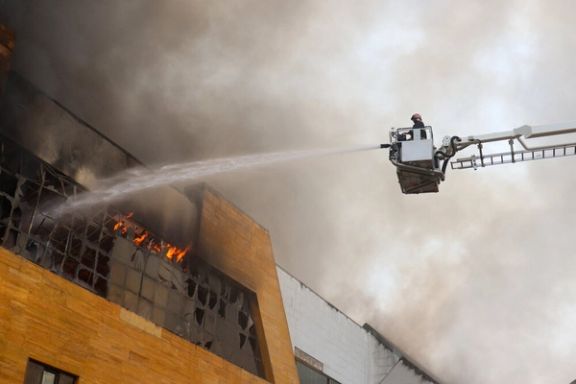
The Islamic Republic has tightened control—erecting checkpoints, increasing Revolutionary Guards and Basij presence and policing public spaces.
The message is blunt: We are still here. But this is not stability born of legitimacy. It is the visibility of power imposed on restless cities.
Today’s urban order rests not on consent, but on continuous police presence.
A collapsing narrative
The 12-day war exposed the hollowness of official narratives: deterrence, security and regional authority no longer carry weight.
Iran’s vulnerability wasn’t just military. It was discursive. The state’s security narrative took a direct hit.
Worse, the war ended without a lasting peace or credible guarantee against future conflict. Peace itself has become unstable. It’s more of an anxious interlude, not a resolution.
With explosions and air defense activity continuing in multiple regions, many expect a new, possibly more intense, confrontation.
Living With Crisis
The long-held notion that the Islamic Republic feeds on crisis is no longer sufficient.
In the past, crises were instrumental—tactics to manage society and consolidate power. Today, crisis is not just a means of rule but the system’s very foundation.
Crises are no longer resolved; they are extended, normalized, and embedded into daily life. The system doesn’t merely survive crisis—it is sustained by it.
This condition has been made possible by a combination of factors: the absence of a unifying alternative, the suppression of public discourse, the fragmentation of dissent, and the systematic blocking of political imagination.

The state has succeeded in minimizing mobilization through control—but it offers no vision for legitimacy in return.
Power has become form without content—a hollow repetition of authority sustained by imposed hopelessness.
Yet this persistence is not stability.
Chronic instability may appear contained—thanks to force and habituation—but the cracks are widening. The theocracy is more detached than ever from the economic, social and institutional foundations that once upheld it.
The drift into slow, grinding dysfunction leaves the country vulnerable to sudden shocks: social uprisings in neglected regions, systemic failures in water, health, or energy, or collective protests triggered by seemingly small sparks.
The Islamic Republic may still be standing—but the ground beneath it has never been shakier.
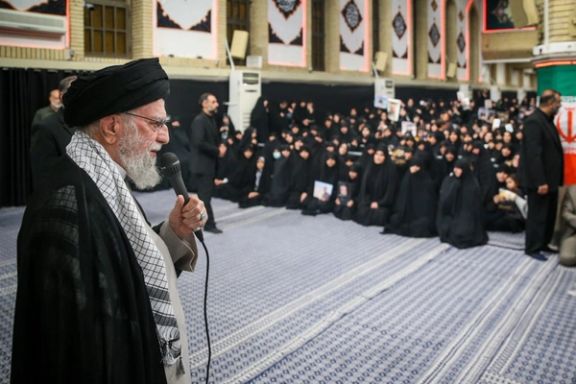
Iran’s Supreme Leader Ali Khamenei said on Tuesday that Western powers, led by the United States, are using Tehran’s nuclear program as an excuse for confrontation with the Islamic Republic.
“The nuclear issue, uranium enrichment, and human rights are just excuses,” Khamenei said during a ceremony marking the 40th day after the deaths of Iranian military commanders and scientists killed during a recent 12-day conflict with Israel.
“Their real problem is Iran’s religion, knowledge, and national unity under the banner of Islam and the Quran.”
US President Donald Trump on Sunday expressed surprise at Tehran’s continued insistence on uranium enrichment despite last month’s American airstrikes on its nuclear facilities, vowing renewed strikes if Iran restarts nuclear work.
Speaking at the Imam Khomeini Hosseiniyeh at his residence in Tehran on Tuesday, Khamenei addressed families of the deceased and government officials.
“The world has now seen the full capability of the Islamic Republic up close,” he said. “These events are not new for us. For 46 years, we have resisted coups, wars, political unrest, and all types of plots.”
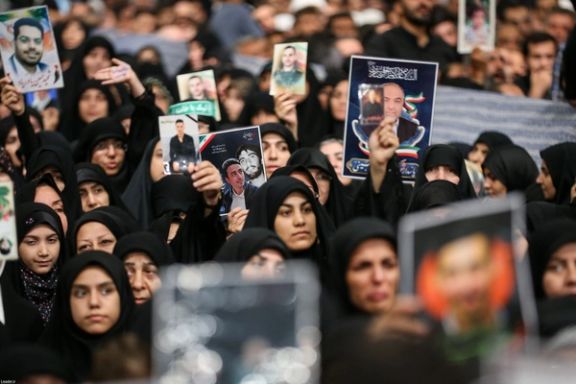
Khamenei added that Iran would not abandon its twin foundations of “religion and knowledge” despite mounting international pressure.
“With God’s help, we will continue to take great strides in strengthening our faith and deepening our scientific achievements,” he said. “To the dismay of our enemies, we will elevate Iran to the height of progress and pride.”
Iran’s nuclear program has long been a flashpoint in its relations with the West, with the US and European powers accusing Tehran of seeking to develop nuclear weapons. Iran denies the accusation, saying its nuclear activities are for peaceful purposes.
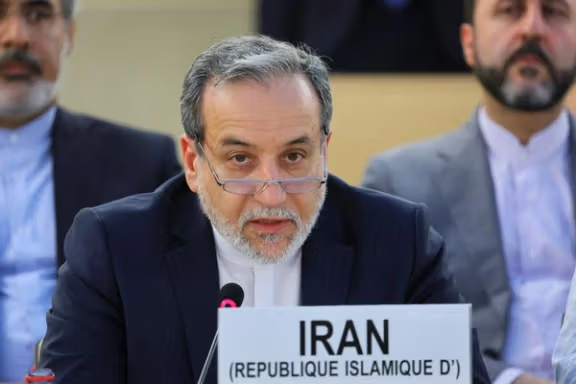
Iran's foreign minister on Monday insisted Iran would not give up enrichment and the United States has no way to end it militarily, hours after US President Donald Trump vowed to wipe out Iran's nuclear sites again if it revived its activities.
"All should know that we Iranians have NOT BOUGHT our PEACEFUL nuclear program; we have BUILT IT WITH BLOOD, SWEAT, AND TEARS," Araghchi posted on X on Monday.
"Yes, our enrichment facilities are severely damaged, but our DETERMINATION IS NOT."
Trump earlier in the day warned that if the Islamic Republic moved toward any form of nuclear weapons capability, he would not hesitate to carry out further strikes.
“They can start again. If they do, we'll wipe it out faster than you can wave your finger at it. We'll have to do that. We will do that gladly, openly and gladly,” Trump said.
On Sunday, Trump rapped previous statements by Araghchi, saying Iran is “stupid” to insist on uranium enrichment.
"They still talk about enrichment. I mean, who would do that? ... How stupid can you be to say that?" Trump said.
On his message on X, Araghchi said the damage of the military strike were severe, but Iran will follow through with enrichment plans.
“The technology and know-how that our formidable human resources have developed cannot be destroyed by bombings. Yes, our enrichment facilities are severely damaged, but our determination is not,” Araghchi said.
"Iran knows exactly what happened during the recent American-Israeli aggression, both to us and our adversaries, including the extent of blows that are still being censored," Araghchi added.
Iran fired 13 missiles towards the United Stated Al Udeid based on Qatar on June 23 and one day after US attack on nuclear facilities in Fordow, Natanz and Esfahan.
At the time, President Trump said "13 (missiles) were knocked down, and 1 was ‘set free,’ because it was headed in a nonthreatening direction."
Iran International reported on July 11 citing satellite imagery that a cutting-edge communications hub within the United States base in Qatar was apparently destroyed due to Iran missile attack.
Israel launched a 12-day military campaign against Iran on June 13, killing hundreds of Iranian military personnel, nuclear scientists and civilians. In retaliation, missile strikes by Iran killed 29 Israeli civilians.





